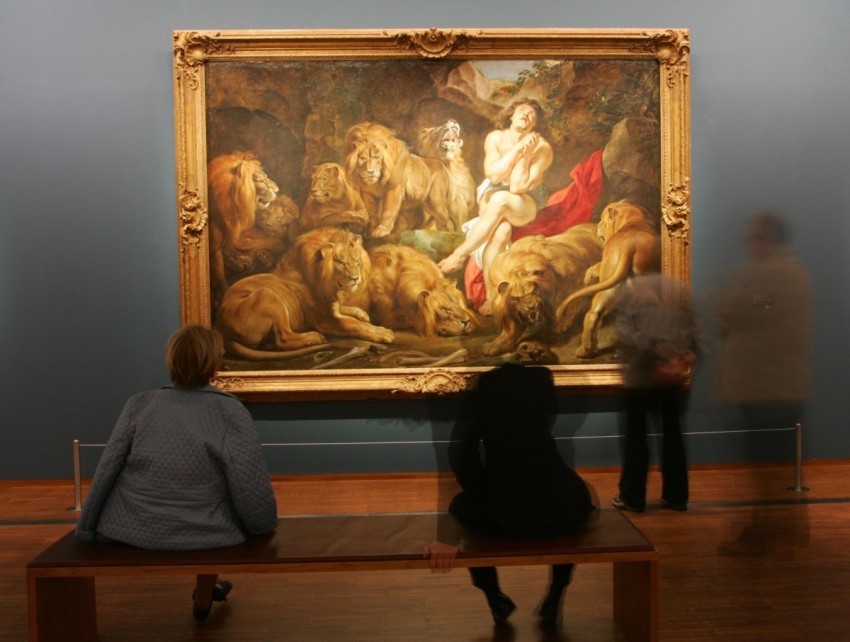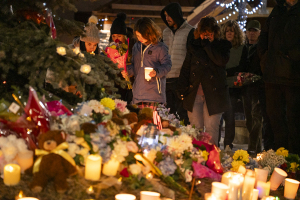Lessons in nonconformity from Daniel

As a follower of Jesus, my highest calling is to love God with all of my heart, soul, mind, and strength and to love my neighbor as myself.
But as a follower of Jesus who lives in the United States, I am deeply concerned about how the Christian Church here has capitulated to a comfortable Gospel — a Gospel that does not resemble what Jesus preached.
We have compromised the truths of Scripture by conforming to the culture, and we have done so for decades. But how can we find the courage to stand up to the metaphorical giant of conformity?
The prophet Daniel shows us how.
Daniel was a young Jewish man who had been kidnapped from Jerusalem as part of the Babylonian Captivity. In 605 BC, soldiers from Babylon, led by Nebuchadnezzar II, defeated the combined armies of Assyria and Egypt in the Battle of Carchemish. Shortly after his father’s death, Nebuchadnezzar II became the ruler of the Babylonian Empire. That same year, he attacked Jerusalem. He attacked Jerusalem again in 597 BC and again in 586 BC when he finally succeeded in destroying the city and burning the temple. His men abducted the surviving Jews and forced them to travel 1,600 miles to Babylon.
Daniel lost everything — except his faith.
Along with Shadrach, Meshach, and Abednego, Daniel was taken into the courts of King Nebuchadnezzar II to be trained to serve in the king’s palace. The four young men were isolated, reeducated, intimidated, and renamed.
They had every reason to conform to Babylonian culture. They had suffered tremendous loss and abuse. Conformity offered a possible escape from pain, ostracization, and death.
When confronted by the chief eunuch about refusing the king’s food and drink, Daniel asked that he and his friends only be given vegetables to eat, believing that God would take care of them. Daniel had “purposed in his heart that he would not defile himself,” so he requested an alternative (Daniel 1:8-16).
There was a line Daniel would not cross and he made it known that he would not cross it. But Daniel did not protest with a raised voice or raised fists. He exercised humility in his nonconformity. He knew the rest of his life and the lives of his friends — and that of the chief eunuch — depended on that crucial moment.
Daniel’s choice began with an inward conviction. He met the isolation, re-education, intimidation, and renaming with a determination to remain faithful to his God, no matter what. The power to not conform to what the culture around us says is right is always an inside job.
And Daniel did not make his choice because he thought he could transform Babylon. He knew he never could. Ultimately, he never did, although God used him in mighty ways because of his faithfulness.
Daniel was not trying to change Babylon — he purposed in his heart that he was not going to let Babylon change him.
While Daniel did not live to see all the fruits of his faithfulness, other people did, like the Magi who brought gifts to the child Jesus. Apostle Matthew writes, “Now after Jesus was born in Bethlehem of Judea in the days of Herod the king, behold, wise men from the east came to Jerusalem,saying, ‘Where is he who has been born king of the Jews? For we saw his star when it rose and have come to worship him’” (Matthew 2:1-2).
But how did these men know to look for a Jewish king? They would not have known unless someone told them about him.
After Daniel successfully interpreted King Nebuchadnezzar II’s dream (Daniel 2), the king appointed him ruler over the entire province of Babylon and the chief administrator over all the wise men. While Daniel requested that Shadrach, Meschach, and Abednego manage Babylon instead, he remained in the king’s court and mentored the wise men. Presumably, he taught them about his God. And the overarching theme of Daniel’s surviving writings is that a Jewish king will one day come to rule the world.
Centuries later, Daniel’s influence would culminate in Gentile astrologers from the Medo-Persian Empire — which overthrew the Babylonian Empire in BCE 539 — traveling hundreds of miles to worship the young Messiah.
All because Daniel refused to conform.
Of course, Daniel’s attitude and lifestyle did not save him from persecution. After all, he was eventually thrown into a den of lions for refusing to worship King Darius (Daniel 6). While God chose to miraculously save Daniel, he was willing to risk his life for his faith.
While we modern-day followers of Jesus in the United States cannot parallel our situation with Daniel’s, we can still learn from his example. He lived with conviction, exercised his faith with humility and without compromise, and taught others about God in a respectful, God-honoring and others-honoring way.
Following Jesus is hard, especially when our culture screams at us that we are fools for following Him. But Jesus never said it would be easy. Rather, he told His followers, “For the gate is narrow and the way is hard that leads to life, and those who find it are few” (Matthew 7:14).
We need to pray for the same kind of wisdom that Daniel had. And let us not forget the meaning of Daniel’s name: God is my judge.
Skip Heitzig is the senior pastor of Calvary Church in New Mexico and is the author of numerous books and publications. His radio and television broadcast, Connect with Skip Heitzig, is available throughout the United States and around the world.



























